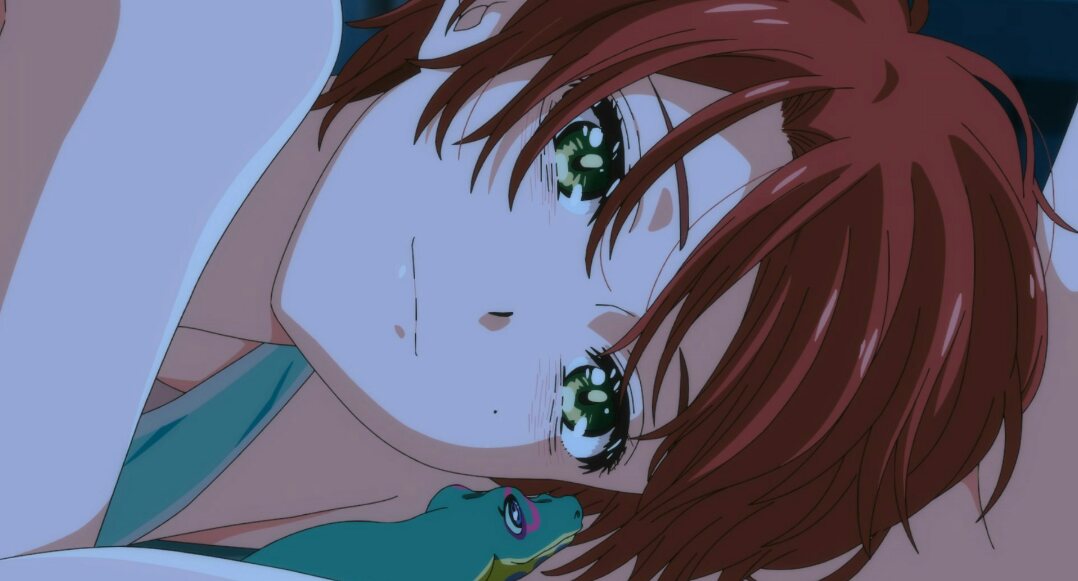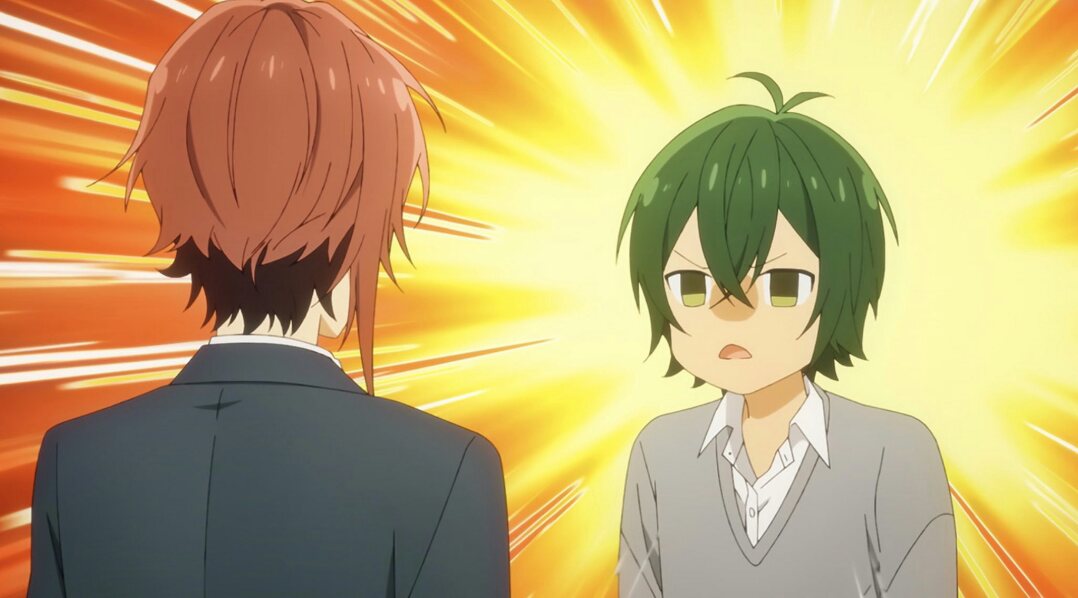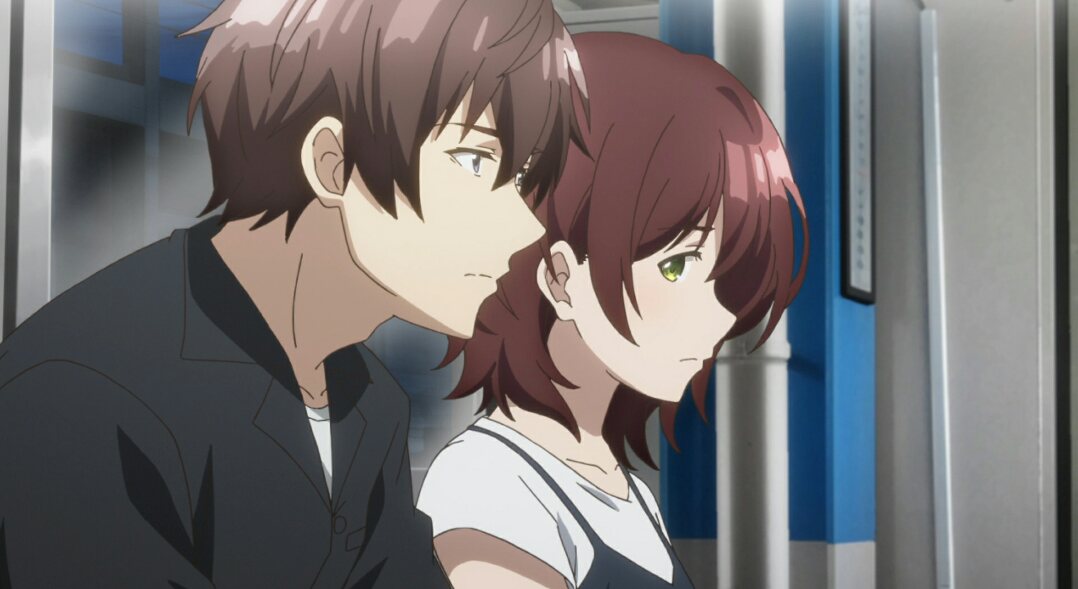SEASONAL PRATTLE
Jaku-Chara Tomozaki-kun gets ever closer to its conclusion and evidently, is only getting stronger along the way. Pretty much every text based element of episode eleven was wonderful: A sober, confrontation of Hinami’s philosophy marries sweet catharsis as Tomozaki comes around to the truth he’s been desperately trying to mask, the truth so many people spend so much of their lives trying to mask – the sense of inadequacy that lead him to construct a false bubble of social acceptance and “ideal” behavior. This is all delivered well with dedicated exchanges between Mizusawa, Tomozaki, and Hinami that are fairly blatant in their needs but not at the cost of substance – inevitably burning down to one final train station conversation that doesn’t conclusive frame any competing perspective as “wrong”. Hinami’s more systematic view of goals and self-image in life has its place in a particular context while Tomozaki’s new embrace of authenticity appears more reasonable in a wider application. What is “right” is probably somewhere in-between, but it’s a nice dynamic to consider and solve as we head towards the finale nonetheless. Commendable episode.
Wonder Egg Priority (10)
“Blessed with an often underappreciated level of balance”
Another Tuesday is passing, and with that, Wonder Egg Priority pushes on – mainly presenting a focused excavation of Momoe’s self-image all while generally articulating the fibers of her world in what would amount to be another positive episode. Fortunately, this series is competent with its brand of writing: In a lesser work, the Accas’ stake in the narrative would wholly consume the script, turning the reveal we received from them in ten into pure limelight material – suddenly shifting away from the thorny concoction of character work and curiosity that makes Wonder Egg so enjoyably in the first place.
Thankfully, that’s not the case, and their specific involvement stands as more of a supplementary element to the girls’ emotional journeys, doing well in giving the show a more conceptual bite with its Freudian inclusions and acting as a flexible container to package all of its ideas in on a whole. On that note, this episode is blessed with an often underappreciated level of balance; It cleanly checks the boxes it needs to position the broader desires of the story all while still having enough rhythm to land Momoe’s thread, which in hindsight, is a scarily cheery depiction for how she compartmentalizes her suffering.

Horimiya (11)
“Pieced together in such a way that it denies itself the chance to become anything worthwhile”
Wasting no time to spiral into mediocrity, Horimiya slugs through trivial plot points based around its most fringe cast, leaving nothing but the distinct feeling that one could have skipped episode eleven and not miss anything even slightly relevant. The content here isn’t just notably vapid, being as dramatically moving and funny as a couch cushion, but it is pieced together in such a way that it denies itself the chance to become anything worthwhile. Well-established structural issues from earlier episodes not only return, but they’re inflamed by the choice to center around the thin presence of Sawada, Iura, and even worse – Iura’s completely inconsequential sister, Motoko – all back to back. It makes for a drag that doesn’t take long to bore as it setups, and even when it reaches its emotional peak, Motoko is so plainly crafted that the height of her conflict is stale. It’s clear that CloverWorks has made some pretty questionable choices of not only how they fundamentally adapt this series’ material but where they chose to place certain chapters in the show’s run.

